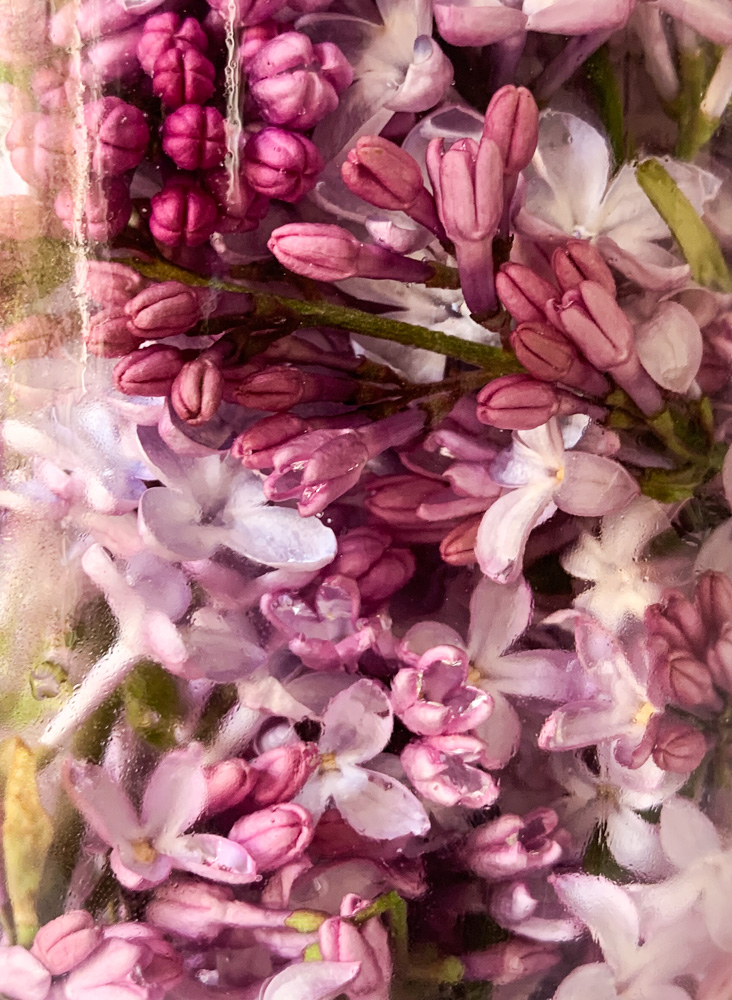
It was only April but the air was thick. We had left our hotel beds that morning and trudged around all day, not to return until we’d wrung the city dry. The grime of the city coated our skin: the wind along The Brooklyn Bridge, the exhaust of the Lower East Side, the blast of air conditioning, the stickiness of the journey all the way from the Guggenheim through Central Park and down, slowly, into the West Village. We had an hour before dinner, so we popped into a store I had read about online. Cap Beauty, known for natural beauty products, spa treatments, matcha powders and its own brand of cult coconut butter, the kind you want to eat straight from the jar.
We walked in, trying to look fresh and local despite fatigue and the bags we’d accumulated dangling from our wrists.
Would you like some tea? a dewy-faced woman asked as we walked in. Yes please. The place was a jewel box, mirrored, plush, each shelf backlit with a gentle pink glow. I wanted to sink into the window seat, next to the cherry blossoms stretching towards the light. Instead I held it together, and in a moment of clarity, reached for a tester of dewy facial mist. I closed my eyes, pressed down on the top, and suddenly, as micro drops landed on my face, I heard angels singing. There’s a reason why people spritz their face after a long flight. A quick mist changes the subject, satisfying a need for touch, smell and temperature in one quick spritz. I was renewed, clean and calm. Ready to start again.
It’s just over a year later and my bottle of dewy mist is almost gone. During isolation the voices told us to ‘keep routines’ to stay well. ‘Practice self care’. So when I felt the grime, the weight, the intensity, I’d spritz, inhale slowly, and start again.
The grime has been heavy this week. It’s hard to wash off. It’s in my city, its history, my history, my skin. It’ll take more than an aromatic deep breath to contribute to the changes we need to see in this world. We need to add another element- talking and listening. So I’ve been talking to my kids, listening to them, then listening on my own. These words resonated most:
“The heartbeat of anti-racism is confession. Admission. The willingness to be vulnerable. To identify the times we are being racists. To be willing to diagnose ourselves, and our country, our ideas and our policies. And the reason why this is the heartbeat of anti-racism, is because like with anything else, the first step is acknowledging the problem.”
That was writer and professor Ibram X. Kendi’s confession on Brené Brown’s podcast, Unlocking Us. He is the author of the New York Times bestselling book How to Be an Antiracist. He says he struggled to write about his own issues with racism in the first few chapters of the book. He struggled. But we have an opportunity to self-diagnose and move toward anti-racism.
After listening, I walk around the corner to my sister’s garden and pick a bucket full of lilacs. I’ve connected lilacs to the month of June ever since grade eight when I smuggled a bunch from the alley behind the school into English class. I knew I’d need that jolt of fragrance when class lagged. But then our teacher began sneezing uncontrollably. No one noticed me pushing the lilacs under my desk with the toe of my high top reeboks.
This time round I want to make a face spray to replenish my supply. I’m swapping lilacs for roses, using this simple cold water soak to create fragrant water that I’ll use as a spray. The distillation method (explained over here using rose petals) might be more effective, but I’m lacking the necessary lid required. So in the meantime, I have lilacs soaking in purified water, their beauty suspended behind the glass. In a few days I’ll strain the blossoms and transfer the water to a little spray bottle. It won’t have all the pre-biotics and lupine peptides of my West Village spray. But it will bottle the freshness of an East Coast spring, and release it when I need to pause, breathe and start again.
